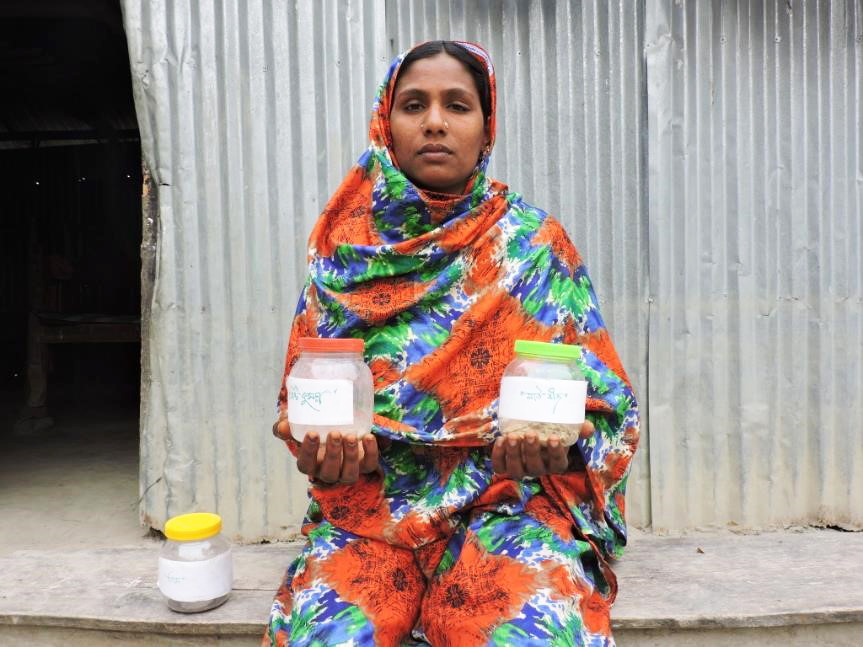In the rural regions of Bangladesh, such as the hard-to-reach chars in the north of the country, women are seen as the guardians of seeds. Women play the primary role in the preservation of seeds from the time they are harvested and stored until they are planted in the following crop. This is crucial – if the seed is weak, the harvest in the following season will be poor. However, if the seed is well selected and preserved, it could even elevate a family or community out of poverty.
This was the case for Phulmoti, a Bangladeshi woman in her thirties living on the Kutchkali char in the district of Gaibandha. Since 2013, Phulmoti has taken part in several training programmes organised by Friendship to empower marginalized communities with sustainable and inclusive solutions. The training she received on Homestead Gardening was the one that has affected her life the most. The programme was conducted by an agriculture officer from the local government office of agriculture, and lasted four days.
Over the course of the workshop, attendees learned how to grow vegetables, such as pumpkins, beans, courgettes and ladyfingers, at a homestead level. Furthermore, they were also taught how to correctly select seeds as well as to preserve them appropriately.
In the isolated char areas, it is difficult for women to share practices and methods of improving the quality of their seeds. Moreover, the importance of the work women put into preserving seeds often goes unrecognised.
As a result, many of the women of the chars were learning these techniques for the first time. Unable to tell the difference between healthy and weak seeds, they previously chose them randomly. They also followed traditional methods of preserving seeds, keeping them in paper or plastic bags, which allow seeds to deteriorate due to exposure to air.
Since the training, however, besides using the methods of preservation and selection taught in the training programme, Phulmoti has also devised ways to organize her batches. She now keeps her seeds in airtight, transparent plastic bottles that have labels corresponding to the seeds they hold. Phulmoti is getting more seeds of better quality since adopting these practices. Consequently, she can also grow better quality vegetables.
Phulmoti’s life has considerably improved. She is now able to provide for her husband, her three children and even for her neighbours. With more vegetables to sell, Phulmoti’s monthly income has significantly increased which has allowed her to invest in more livestock.
It took Phulmoti quite some courage just to present her methods of seed preservation at a local Seed Fair. To her surprise, the judges at the fair were so impressed by her techniques, that they rewarded her for her innovative methods. Her techniques of seed preservation are now recognised all over the char of Kutchkali.

